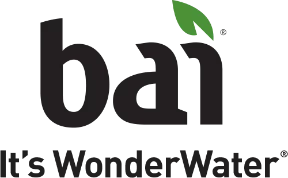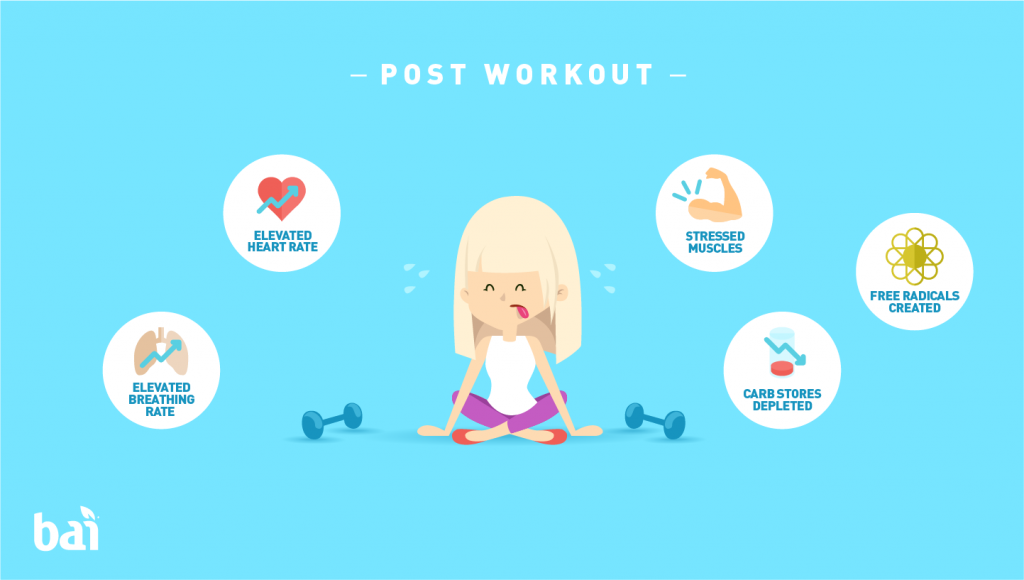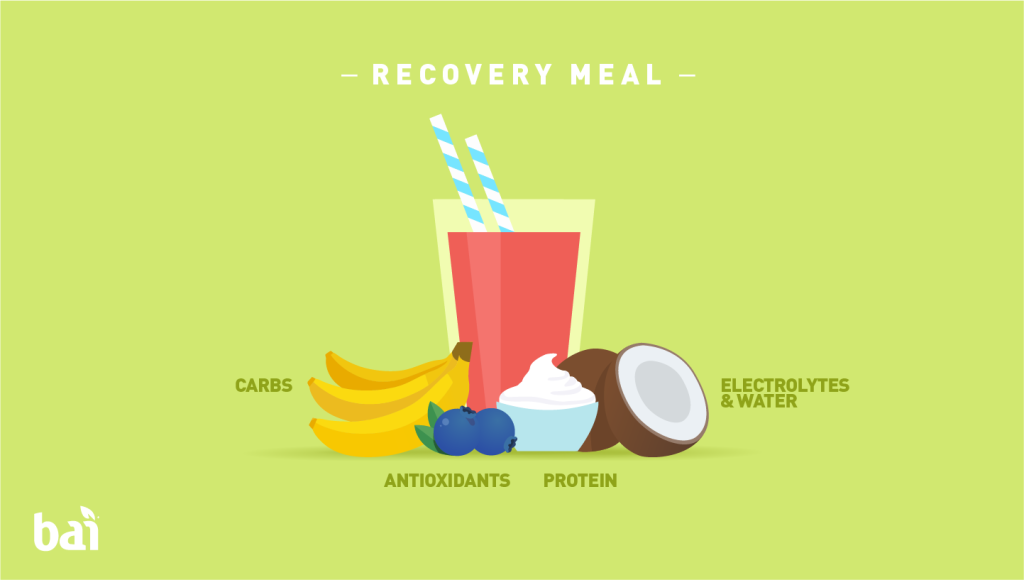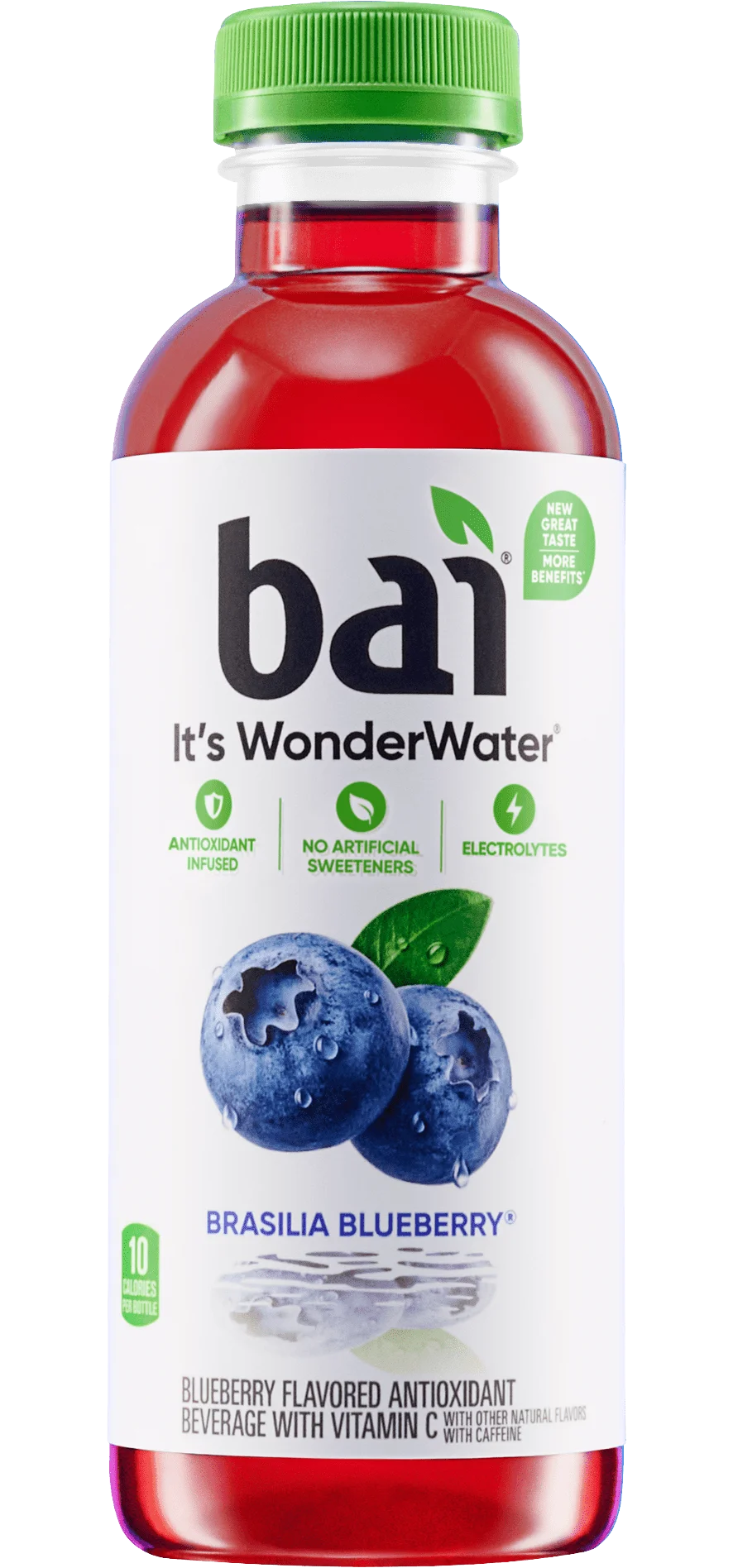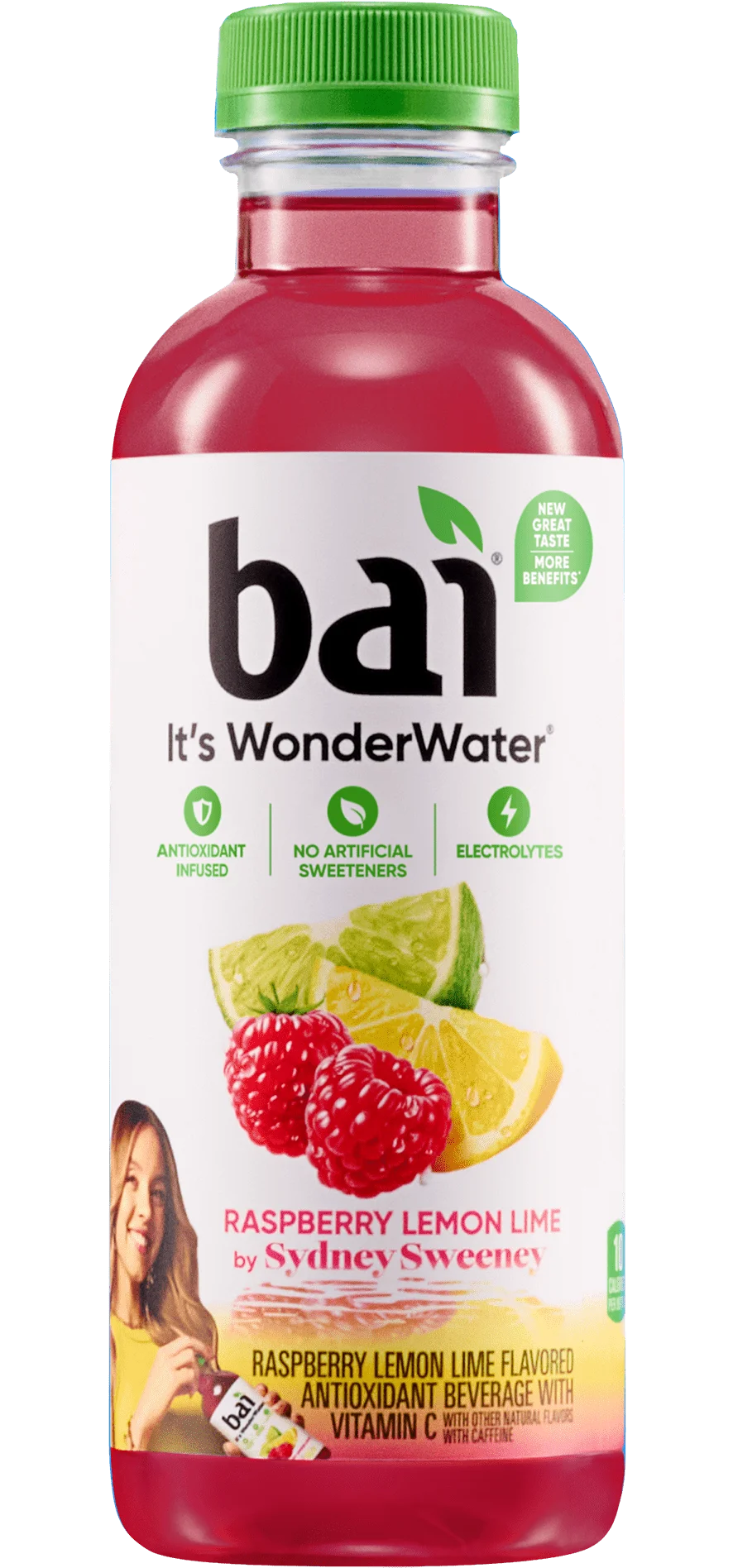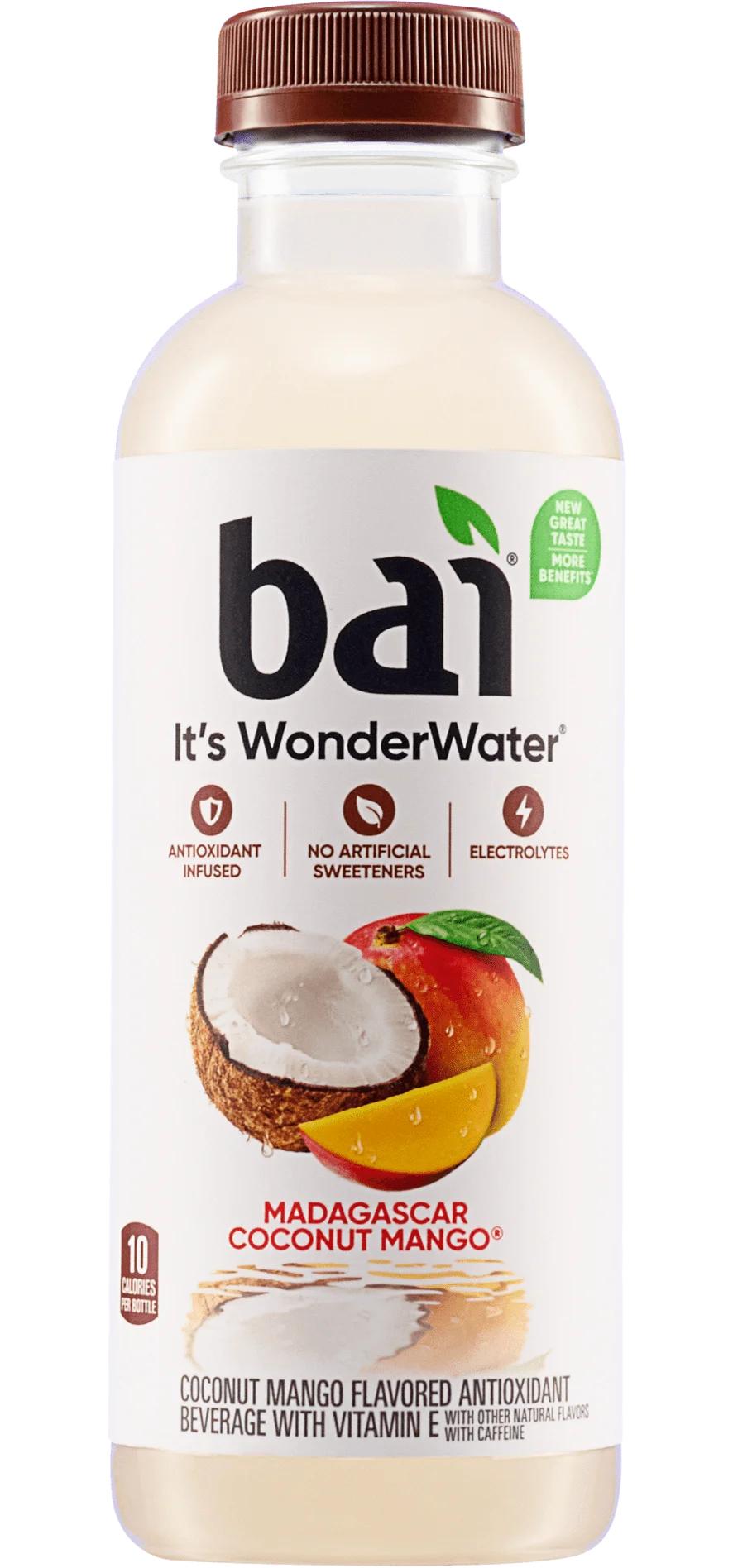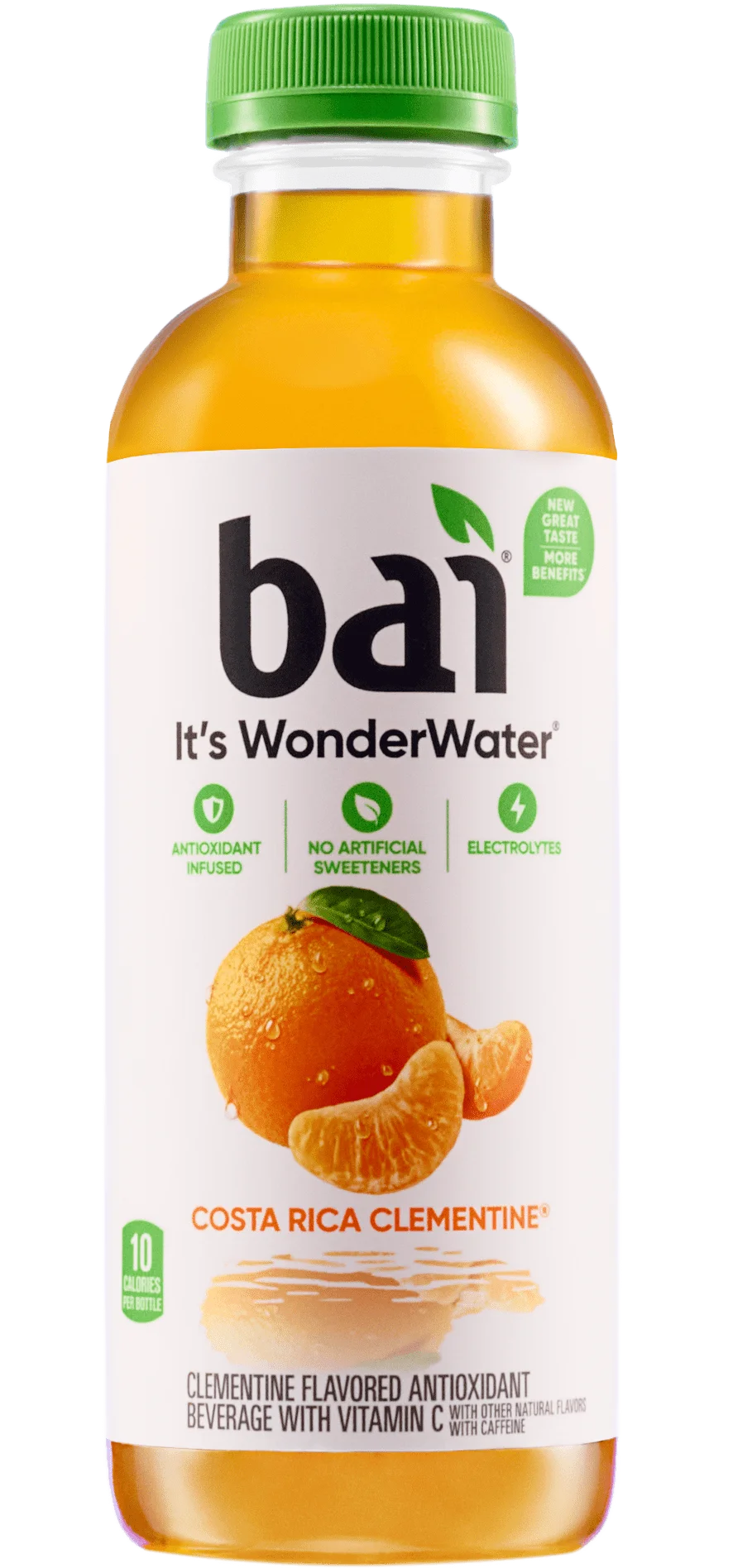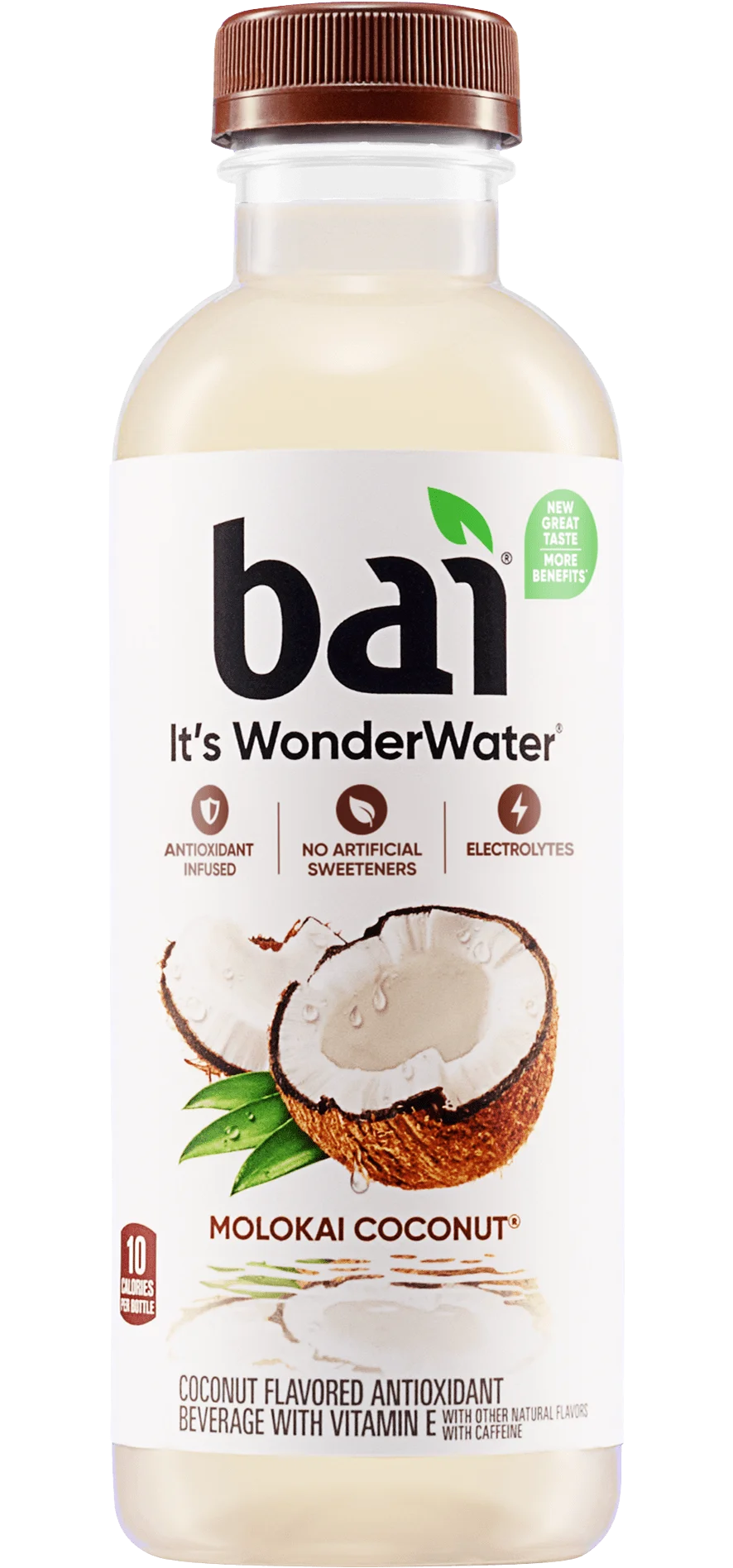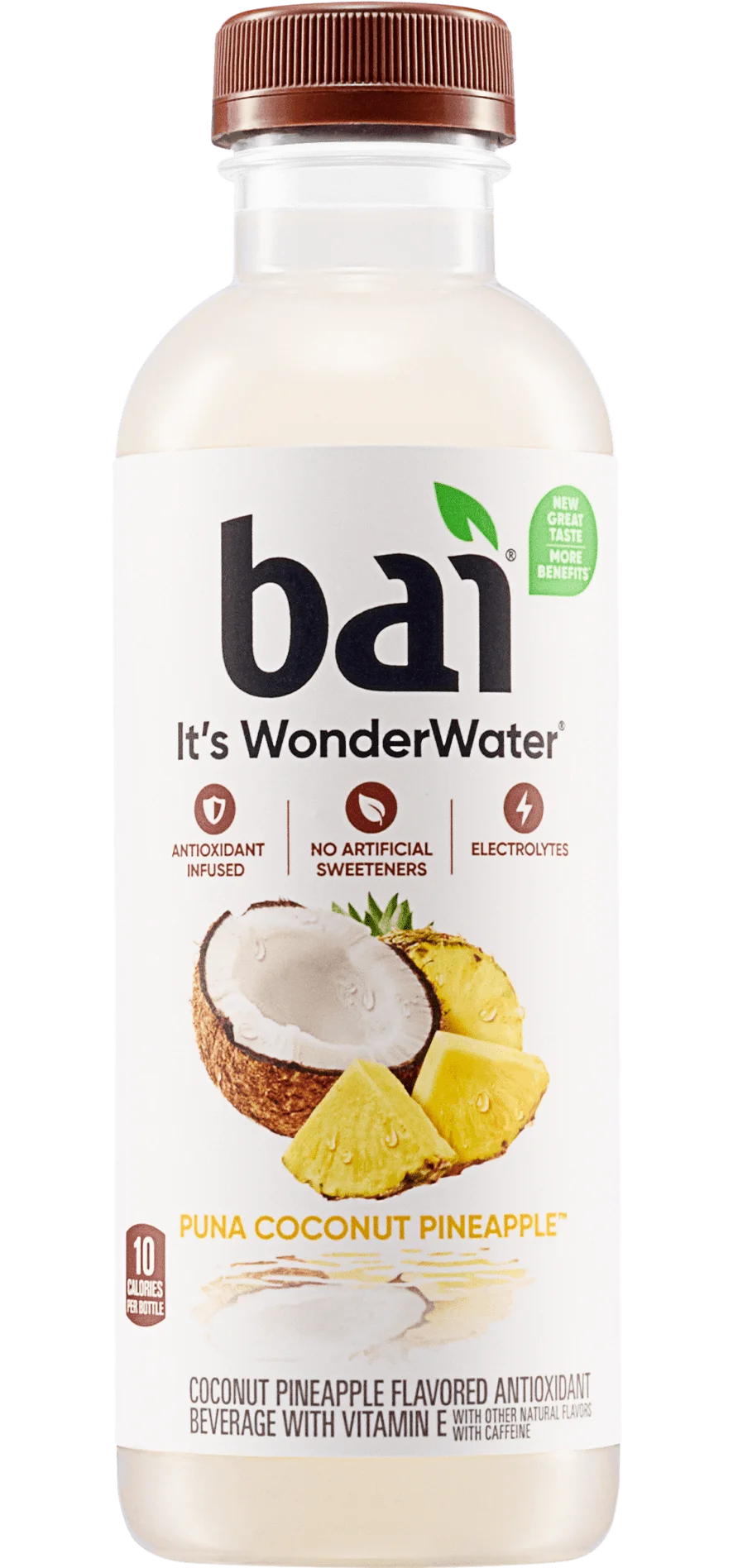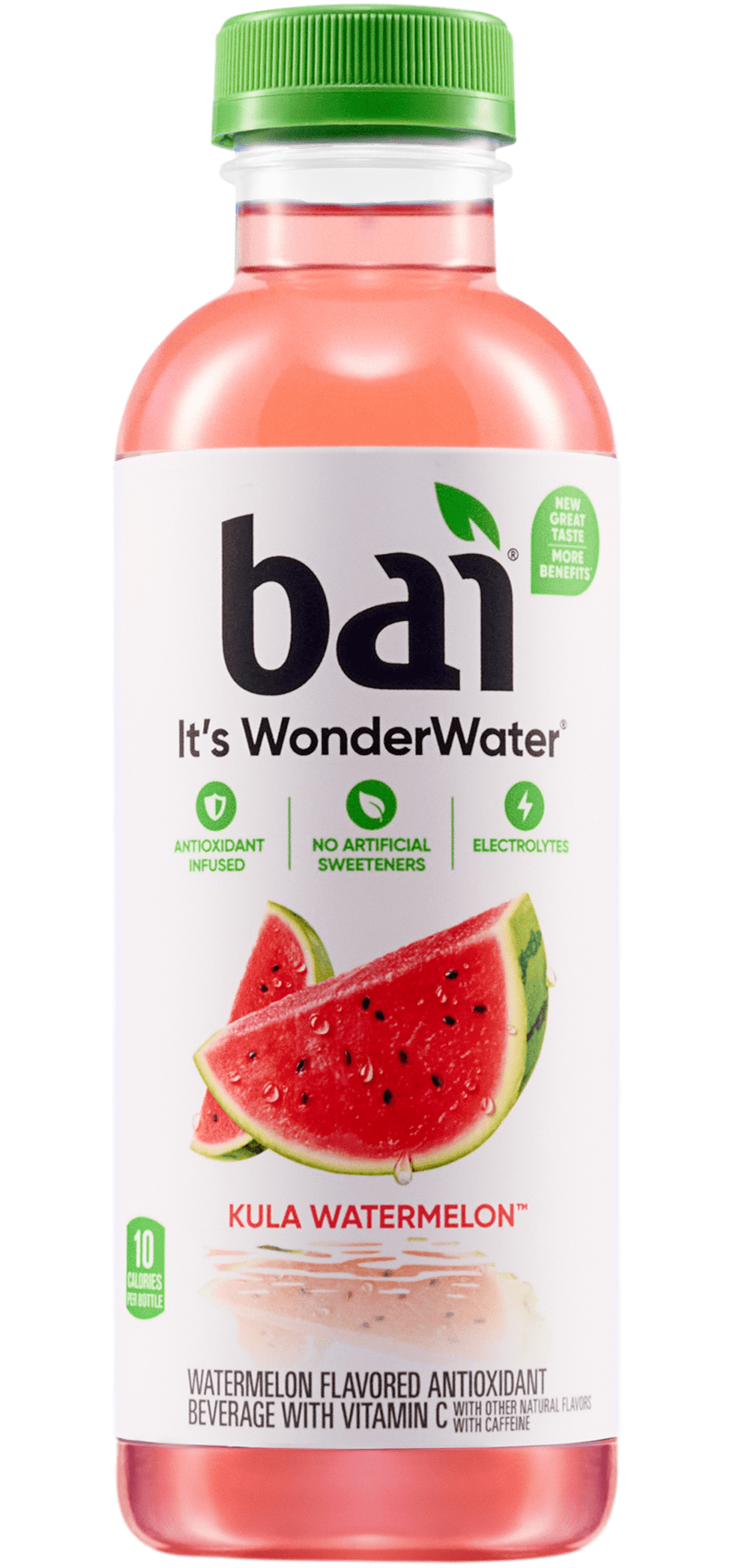Regardless of how hard you’re pushing yourself, your body is put under definite stress during a workout. And the end of your training doesn’t mark the end of your body being in workout-mode. You don’t just snap back into a resting metabolism; your body continues to work harder than usual in order to compensate for the stress you just put it through. This is called the after-burn. You experience this to some degree no matter how hard you exercise, but the especially long after-burn of High Intensity Interval Training is what makes it so successful in burning fat.
All the stress your body goes through leaves you with depleted carb stores, dehydration, an off-balance pH, and plenty of free radicals wreaking havoc on your (more fit than it was before!) body. And all of this can leave you feeling weak, tired, and even leave you susceptible to sickness. Your body needs to properly repair itself post-workout in order for you to a) actually reap the benefits of the exercise you just did, and b) be strong enough to do it all again. And the solution is through food! It’s a dream come true!
How to Compose Your PWO Meal
Protein
If you’ve incorporated any sort of exercise into your regular routine, you’re probably pretty familiar with the notion that your PWO should include protein. While some may assume that protein= muscle bulk, that’s not necessarily the case. Yes, muscles are composed of protein, so if you plan on bulking up you have to provide them with the building blocks. But any form of exercise can stress out your muscles. Yoga, for example, stretches them past their usual boundaries. Muscles aren’t rubber bands; they don’t just snap back into place when you’re done using them. Hence you get sore after a gym sesh’. But protein can help restore the muscle fibers and connective tissue that got pushed past their limit, and can eventually help increase flexibility by doing so. Protein should be eaten soon after any workout- ideally within an hour.
Carbs
You’ve just used up a lot (maybe even all, if you’re a long distance athlete) of the carb stores in your muscles, so you need to replace them. Muscles eat up these carbs to essentially battery-power the repairing process that uses the protein you’re feeding them. And if building muscle mass is your end game, you won’t see any results unless you give them carbs to fuel up with. The sooner after your workout you carb up, the better. Studies show that consuming carbs after this workout is essential for your performance next time you hit the gym (you don’t have to tell us twice- carbivores unite). For the most part, your best bet is to have a complex carbohydrate with your post-workout meal. Reach for something like root vegetables, unrefined grains, or beans.
Fats
The consumption of fats PWO is not as necessary as that of carbs or protein. In fact, studies have shown that eating a high amount of fats with your post workout meal can actually interfere with the absorption of carbs. Which, as you now know, isn’t ideal. But getting fats in your diet is essential for, yet again, bodily repair. Certain fats, namely omega-3 unsaturated fatty acids, are crucial for soothing inflammation. Since working out most definitely gets your blood pumping faster than usual, slight damage to the lining of your circulatory system can occur. Omega-3s can help relieve this safely. Try getting these fats in before your workout or after you’ve given some time for your PWO carbs to enter your bloodstream (1-2 hours). Fatty fish and avocados are great sources of these oily do-gooders. Or dunk a spoon into a jar of PB if that’s your jam… or jelly.
Water and Electrolytes
You get thirsty while you work out because water helps your cells do pretty much everything, and during exercise your cells work at an increased speed. But walking out of the gym doors doesn’t automatically turn these processes back down to resting speed. So PWO water supply is still super essential for keeping up with cells’ demand. Classic metabolism economics. As you’ve probably read in our intro to electrolytes post, water and electrolytes go hand-in-hand. Where electrolytes go, water follows. This hydration tag-team is why electrolyte-rich sports drinks are loved by endurance athletes. But it’s also why a big time sweat sesh leaves your water and electrolyte (the cause of sweat’s saltiness) bank at a low balance. Help yourself out on the PWO hydration front by including potassium, chloride, calcium, and/or sodium in your recovery meal.
Antioxidants
If you need a refresher on what kind of damage free radicals can do, refer back to our past post on the matter. Lots of things, including smoking, obesity, and eating charred meats can cause a free radical build up. But today we’re focusing on the ones that result from your workout. Even though they’re byproducts from perfectly natural processes, exercise makes their production happen at a heavily expedited rate. And our mantra today is ‘recover.’ To do so, get some antioxidants (here‘s our list of some sources) into that PWO meal of yours. Perhaps the most tasty option: sip on a Bai on your way home.
Strength in a Glass Smoothie
Here’s a recipe for one of our favorite post-workout meals. There’s nothing easier than sipping all the nutrients your body needs through a straw. No time wasted= more time to be cool as heck.
- ½ cup plain Greek yogurt
- ½ cup Bai Congo Pear (more if needed)
- 1/4 cup rolled oats
- 1 frozen banana
- 1 tsp cinnamon
- Optional: sweetener, ice cubes
Directions
Combine all ingredients in a blender and mix until smooth. Attempt to avoid brain freeze.
